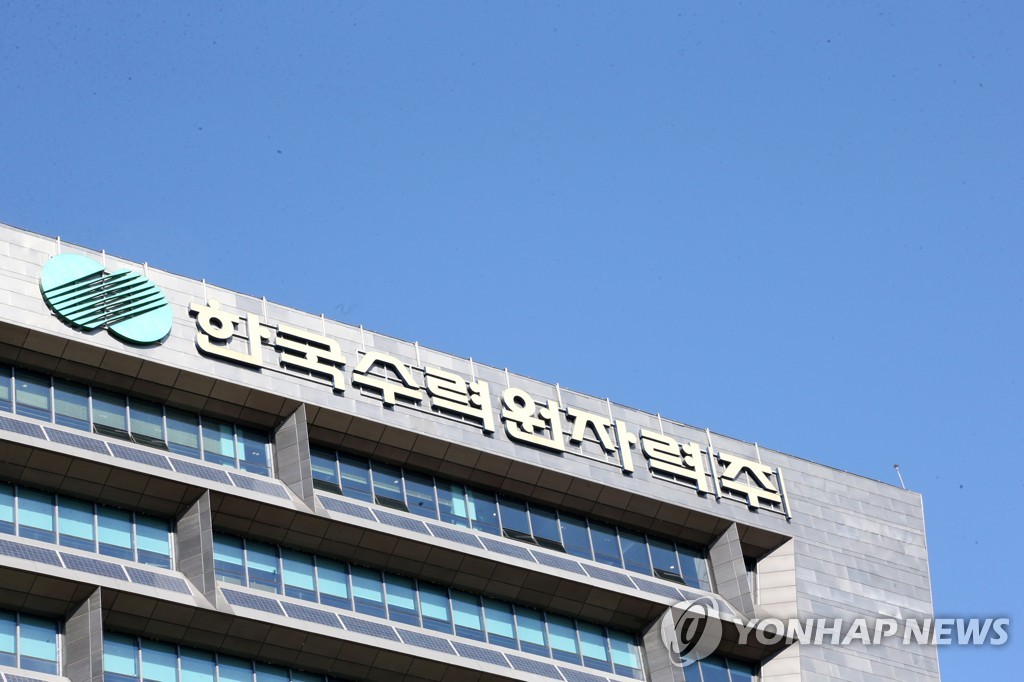KHNP and the Ministry of Industry seem to be concerned about legal responsibility… There’s a long way to go for cost conservation

[연합뉴스TV 제공]
(Seoul = Yonhap News) Reporter Boram Yoon = As the period of approval for the construction plan of Shin Hanul Units 3 and 4 is extended, it is expected that the destiny of the two nuclear power plants will eventually be transferred to the next regime.
It is highly likely that the government will establish a cost preservation system and Korea Hydro & Nuclear Power will withdraw its business on its own, but it will take about two years for the actual cost preservation to take place.
On the 22nd, as the Ministry of Trade, Industry and Energy decided to extend the approval period for the construction plan of Shinhanul Unit 3 and 4 from the 27th of this month to December 2023 at the ’22nd Energy Committee’, KHNP immediately disrupted other projects. The situation in the past could be prevented.
KHNP was in a position to cancel the power generation project permission if the construction plan approval period was not extended.
If the power generation business license is revoked according to the Electricity Business Act, it will not be possible to enter other new power generation businesses for the next two years. KHNP is currently promoting various new and renewable projects besides nuclear power plants such as solar and wind power.
The fear of getting involved in a large-scale damages lawsuit has now been reduced.
About 790 billion won has already been invested in the construction of the site and pre-production of the main equipment for Shin Hanul Units 3 and 4. Of these, KRW 492.7 billion was Doosan Heavy Industries & Construction[034020]This is the amount invested in the reactor facilities and turbine generators.
If the construction of Shinhanul Units 3 and 4 was canceled because KHNP did not get approval for the construction plan within the period, it was highly likely to file a large-scale damages lawsuit with Doosan Heavy Industries & Construction and small and medium-sized equipment companies that requested to order the main unit in advance.
The government seems to have extended the construction plan approval period this time to prevent such a situation.
In addition, it is interpreted that there is also a side of concern that the arrow that asks for responsibility will go to the Ministry of Industry.
This is because KHNP’s failure to carry out the business normally is due to the government’s energy conversion policy, so if an equipment company filed a lawsuit against KHNP for damages, KHNP could hand it over to the Ministry of Industry.
The fact that the laws and ordinances related to the preservation of the cost of post-nuclear power plants have not yet been completed also worked.
The government is pursuing amendment of the Enforcement Decree of the Electricity Business Act to compensate for the loss of electricity business owners legally incurred due to the energy conversion policy to the Electricity Industry Infrastructure Fund (Electricity Fund).
If the revision is made, if the construction of Shinhanul Units 3 and 4 is completely eliminated, it is expected that loss compensation through the Electric Power Fund will be possible. However, if the project is canceled immediately without legalization, conservation is impossible.

[촬영 손대성]
Although the Ministry of Industry and Industry has extended the construction plan approval period, KHNP is not able to start construction of Shinhanul Units 3 and 4 immediately.
This is because the construction plan must be approved by the Ministry of Industry after a construction permit from the Nuclear Safety Committee and environmental evaluation by the Ministry of Environment. It is unlikely that such a procedure will be completed within two years, with the government’s post-nuclear policy stance unchanged.
The Ministry of Industry also nailed, “The purpose of extending the period is not to resume business” in the data distributed after the meeting.
In the end, it is pointed out that the Ministry of Industry did not directly decide on the existence of Shin Hanul Units 3 and 4, but took a temporary measure despite the criticism that it violated the policy stance of the post-nuclear power plant in order to transfer responsibility to the next regime.
The problem is that in this case, the damage goes back to the suppliers.
Equipment companies can take legal action, such as a lawsuit for damages, if the construction permit for Shinhanul Units 3 and 4 is completely cancelled, but there is no way to compensate for the damage if the deadline is extended and the business is not actually proceeding.
Regarding this, an official from the Ministry of Industry said, “The KHNP requested to maintain the power generation permission right until a cost conservation plan is prepared.” We considered the need for at least two years to become, and it is not intended to pass the decision to the next regime.”
In addition, the Energy Conversion Support Act, initiated by Democratic Party lawmaker Lee Won-yeong Yang in October last year, is a content that provides support for expenses expenditure on the project when a business operator changes, cancels, or withdraws a power generation project.
Even if a business operator disagrees with the change of the power generation business, the designation of the business can be withdrawn by a resolution of the committee, and business operators operating nuclear and coal-fired power plants are required to pay a contribution in proportion to the amount of electricity produced.
Unauthorized reproduction-prohibition of redistribution>
2021/02/22 18:06 sent
